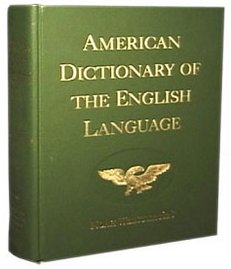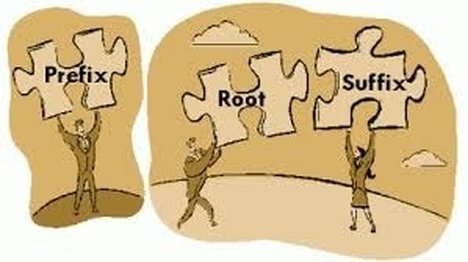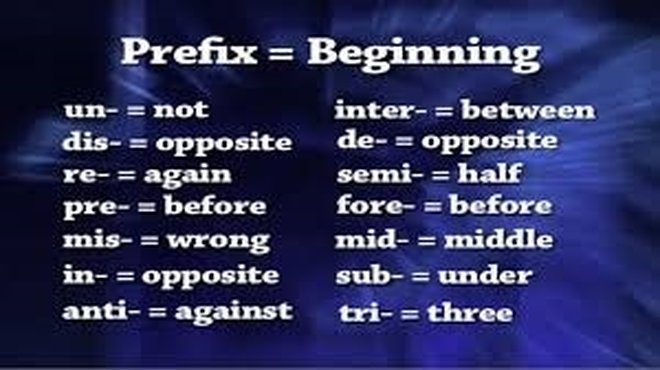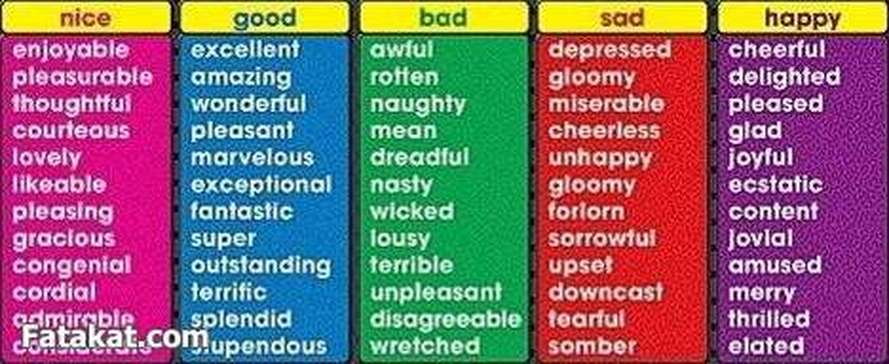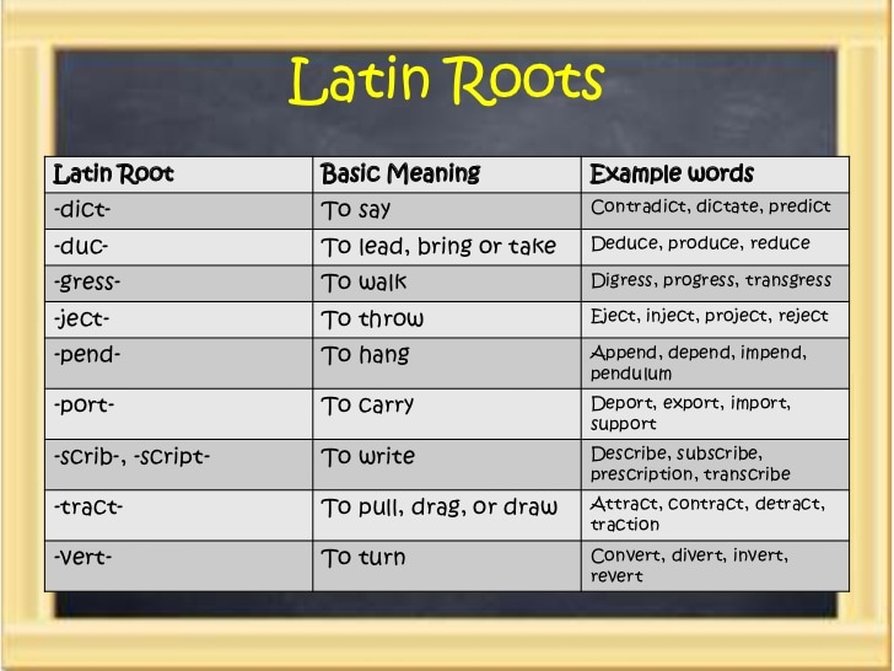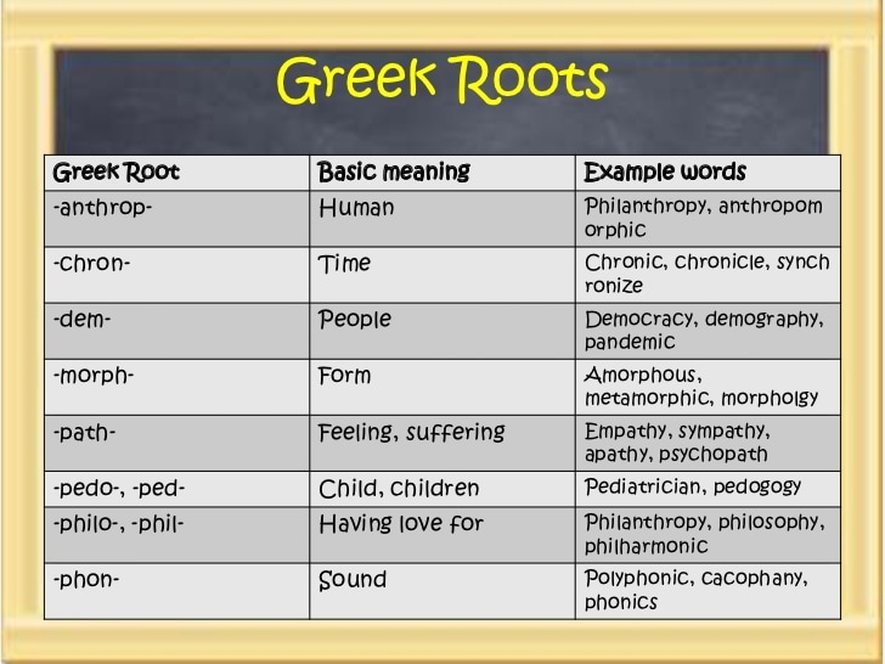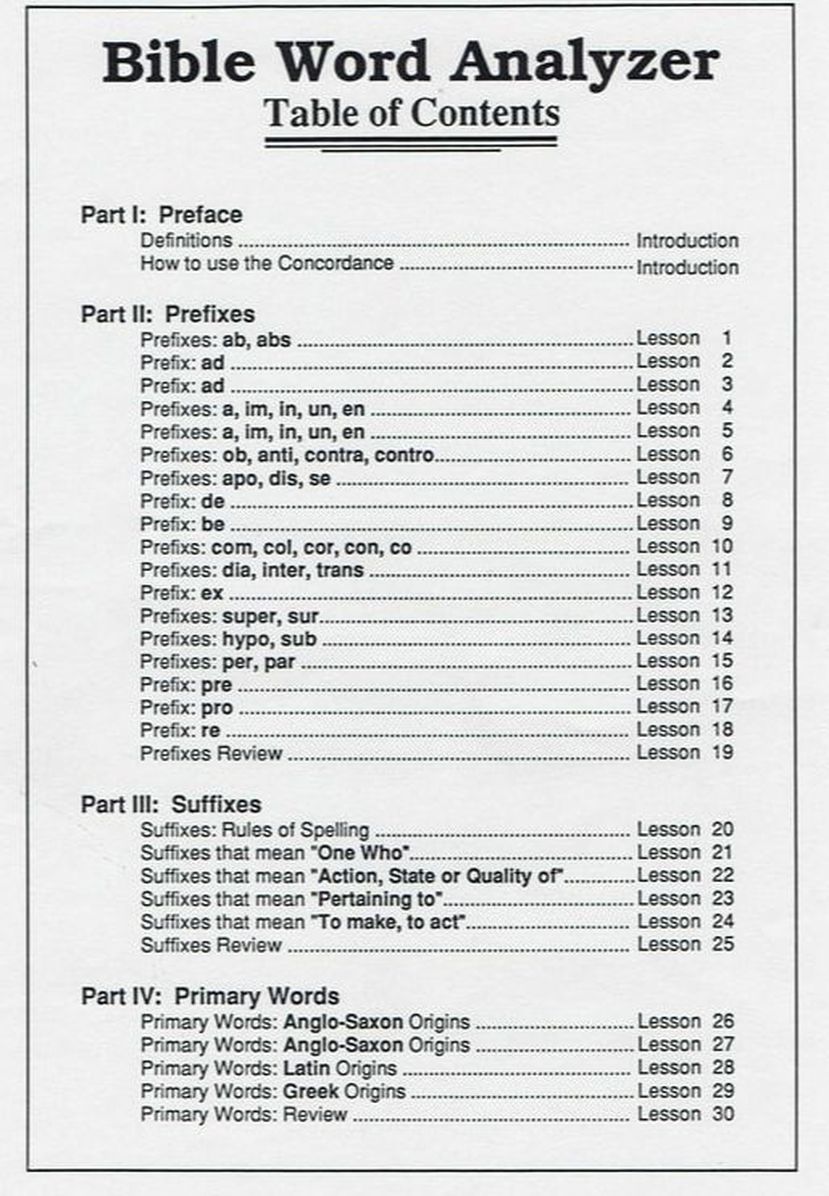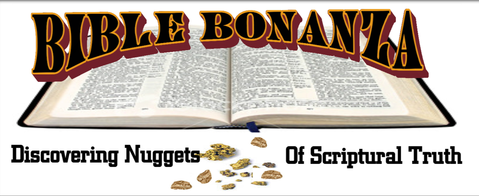"Study to shew thyself approved unto God, a workman that needeth not to be ashamed, rightly dividing the word of truth." II Timothy 2:15
With this Scripture in mind, this study guide is dedicated to "dividing, [dissecting, expounding] the word of truth." Since we read His Word in man's English form, it is important for us to develop a basic understanding of English words, especially in terms of their relationship to the Hebrew and Greek languages: the main dialects from which our modern Bible's are translated.
God's Word is never changing but man's word is forever changing. You may be surprised at the many changes in the meanings of our words since the King James' Bible was written in 1611. Since it is man's interpretations of God's original words and deeds that we are reading, we must be diligent in our studies.
Many of our English words are made up from "foreign" words such as Latin, French, Italian, Greek, Hebrew, etc. We cannot do an exhaustive study here but we can study a few prefixes, suffixes and primitive (root) words to help expand our understanding of English and thereby expand our understanding of our modern English Bibles.
With this Scripture in mind, this study guide is dedicated to "dividing, [dissecting, expounding] the word of truth." Since we read His Word in man's English form, it is important for us to develop a basic understanding of English words, especially in terms of their relationship to the Hebrew and Greek languages: the main dialects from which our modern Bible's are translated.
God's Word is never changing but man's word is forever changing. You may be surprised at the many changes in the meanings of our words since the King James' Bible was written in 1611. Since it is man's interpretations of God's original words and deeds that we are reading, we must be diligent in our studies.
Many of our English words are made up from "foreign" words such as Latin, French, Italian, Greek, Hebrew, etc. We cannot do an exhaustive study here but we can study a few prefixes, suffixes and primitive (root) words to help expand our understanding of English and thereby expand our understanding of our modern English Bibles.
With God's help, I designed this series of 30 lessons to help home-schoolers 25 + years ago. However, it was found to be helpful to all age groups including adults. Therefore, we are offering it here free of charge. The original 1800's book these lessons were developed from was called "The Word Analyzer". We gleaned the information and adapted it to study words found in the Bible as a means to learn to use the Concordance and Bible.
These lessons are divided into three sections: Prefixes, Suffixes and Primitive (Root) words. There are word activities in nearly every lesson to help you understand and use the words more efficiently. There is an answer key with each pair of lessons for parents or students. Most of these lessons are copies of our original Bible Word Analyzer published by Ben Williams from American Christian Ministries.
Since one of the main goals of this study is to help develop our study skills using various resource materials, we encourage you to take the time to look up and analyze the words rather than assume you know them.
We pray you will find this study material useful, informative and helpful in "rightly dividing" the Word of God. We would appreciate your feedback.
First, let us define and understand the terms we will be using in this study.
These lessons are divided into three sections: Prefixes, Suffixes and Primitive (Root) words. There are word activities in nearly every lesson to help you understand and use the words more efficiently. There is an answer key with each pair of lessons for parents or students. Most of these lessons are copies of our original Bible Word Analyzer published by Ben Williams from American Christian Ministries.
Since one of the main goals of this study is to help develop our study skills using various resource materials, we encourage you to take the time to look up and analyze the words rather than assume you know them.
We pray you will find this study material useful, informative and helpful in "rightly dividing" the Word of God. We would appreciate your feedback.
First, let us define and understand the terms we will be using in this study.
~~~~Definitions ~~~~
A PRIMITIVE word, or ROOT, is a word in its simplest form, without PREFIX or SUFFIX. Here are some examples: man, safe, tell, navigate.
A Prefix is a significant syllable joined to the beginning of a Primitive word. Here are examples: un, fore, circum.
A Prefix is a significant syllable joined to the beginning of a Primitive word. Here are examples: un, fore, circum.
If we join the prefix "un" to the beginning of the primitive word "safe" we get a new word, "unsafe" meaning not safe. So we can see that the prefix "un" = not.
Can you think of other words that change meanings by adding the prefix "un"?
How about: sure, done, kept, clean? Click on this link "un" for more.
Can you think of other words that change meanings by adding the prefix "un"?
How about: sure, done, kept, clean? Click on this link "un" for more.
Now, let's join the prefix "fore" (meaning before) to the beginning of the primitive word "tell". Foretell means; to tell beforehand or previously.
Can you think of other words that change meanings by adding the prefix "fore"?
How about: arm, finger, hand, head, cast? Click on this link "fore" for more.
Can you think of other words that change meanings by adding the prefix "fore"?
How about: arm, finger, hand, head, cast? Click on this link "fore" for more.
Let's join a little less common prefix; "circum" (meaning around)to the beginning of the primitive word "navigate". Circumnavigate would mean to navigate around the world.
Can you think of other words that start with the prefix "circum"? How about circumstance, circumvent, circumference? Click on this link "circum" for more. Look up the meanings of words you do not know.
Chart of common Prefix's
Can you think of other words that start with the prefix "circum"? How about circumstance, circumvent, circumference? Click on this link "circum" for more. Look up the meanings of words you do not know.
Chart of common Prefix's
A suffix is a significant syllable joined to the end of a primitive word. Here are a few examples: ly, er, less.
The suffix "ly" forms adverbs from adjectives: gladly; gradually; secondly.
Join the suffix "ly" to the end of the primitive word "man" and you get manly (man-like or like a man). Other words ending in "ly" are: absolutely, absurdly, accidentally.
Think of other words that end with the suffix "ly". Click on this link "ly" for more.
Join the suffix "er" to the end of the primitive word "sweet" and you see that it means more sweet. When you join "er" to an adjective it means more, and is said to form the "comparative degree".
A SYNONYM is a word that means the same or nearly the same as another word.
Here is a list of Synonyms for a few simple words we use everyday.
Here is a list of Synonyms for a few simple words we use everyday.
ETYMOLOGY is the study of the origin of words. A good Etymology dictionary resource:
Online Etymology Dictionary: http://www.etymonline.com/index.php
TRANSLITERATE means to substitute letters or words of one language for those of another. To transcribe (a word, etc, in one alphabet) into corresponding letters of another alphabet: the Greek word λογοσ can be transliterated as ``logos'' transliteration, noun.
An Example: “Angel” – Did you know that this word is not a translation? It comes from the Greek word “ /aggelos” (when two “g” sounds are back to back, it is an “n” sound in Greek). The word means “a messenger, envoy, one who is sent, an angel, a messenger from God” http://www.bible-discovery. com/ dictionary-license-thayer.php. So, the basic meaning of “angel” is not a heavenly being. It can refer to such beings, but it also can refer to earthly, human messengers. For example, in Mark 1:2 we read, “Behold, I send My messenger before your face,” a quotation from Malachi 3:1. The word “messenger” is from that word “ /aggelos,” and in this instance, it refers to John the Baptizer. Yes, in the strictest sense, John was God’s “angel.” Interesting, is it not?
Many of our English words come from Latin or Greek Roots (Primitive words). Here are a few examples of each.
Now that we have defined the terms we will be using, let us take a closer look at
"How to Use the Concordance", at this link. I suggest you do that lesson before you continue with the Bible Word Analyzer as we will be using the Concordance in nearly every lesson.
It will also be helpful to review the books of the Bible and their abbreviations at this time. You will find this at the beginning of your Bible as well as the beginning of most Concordances. Of course Bible Hub and other Bible study sites can help with this as well. It is a very good thing to memorize the books of the Bible.
Mary Lou and Robert Becker [email protected]
